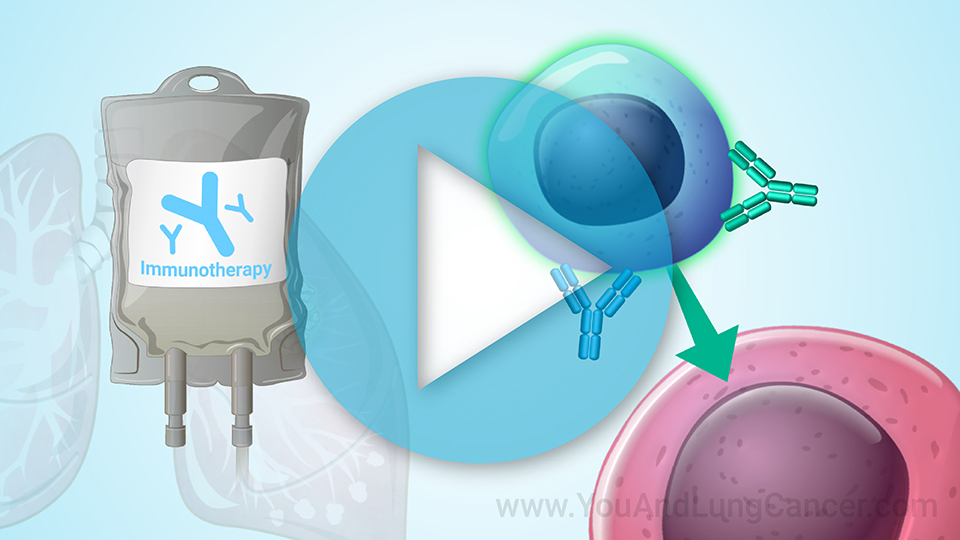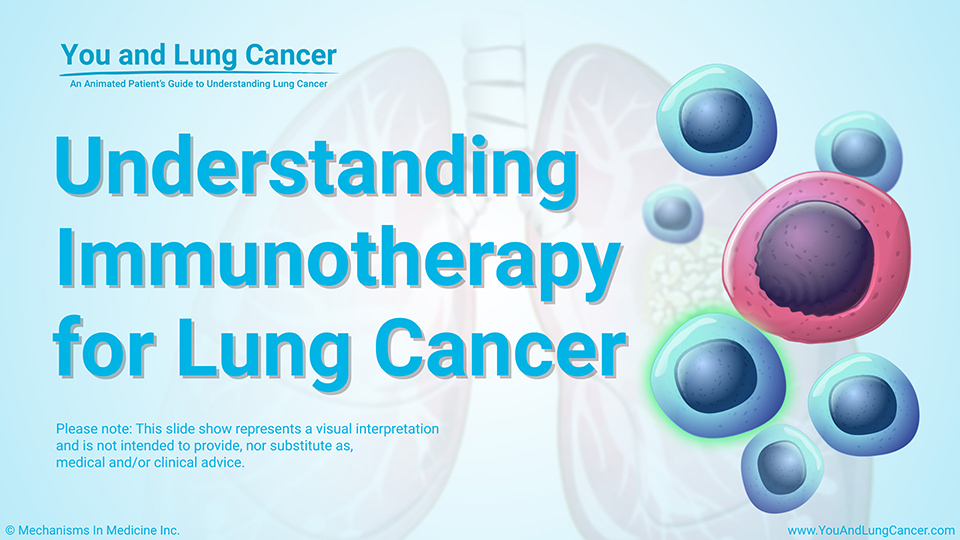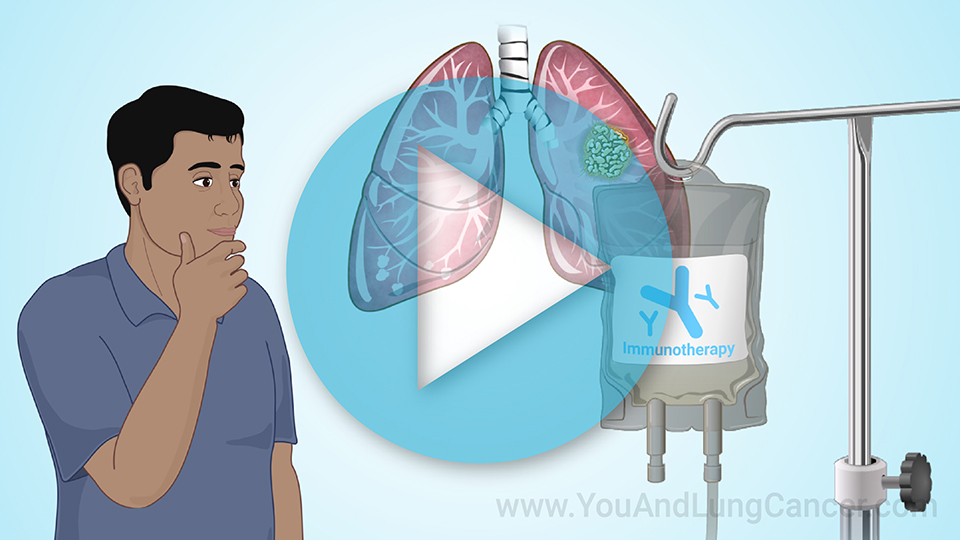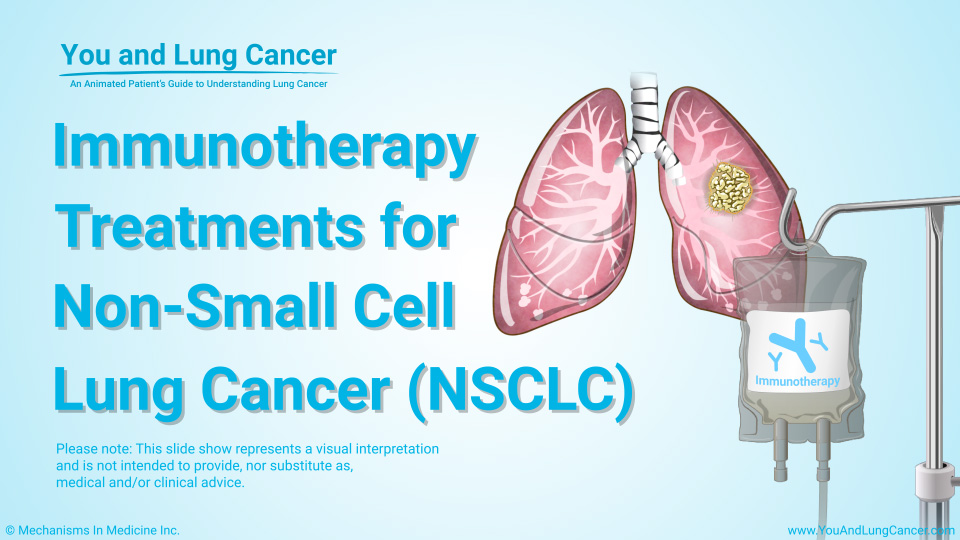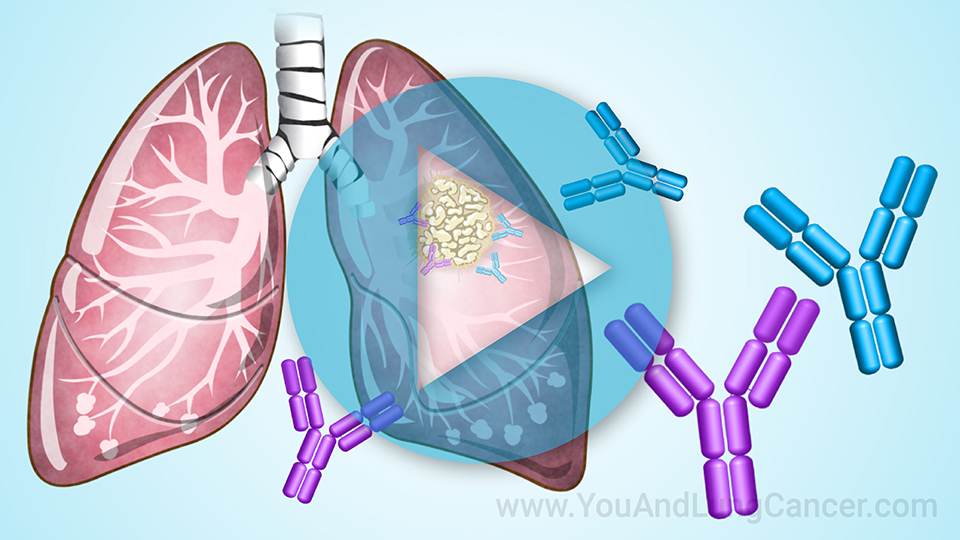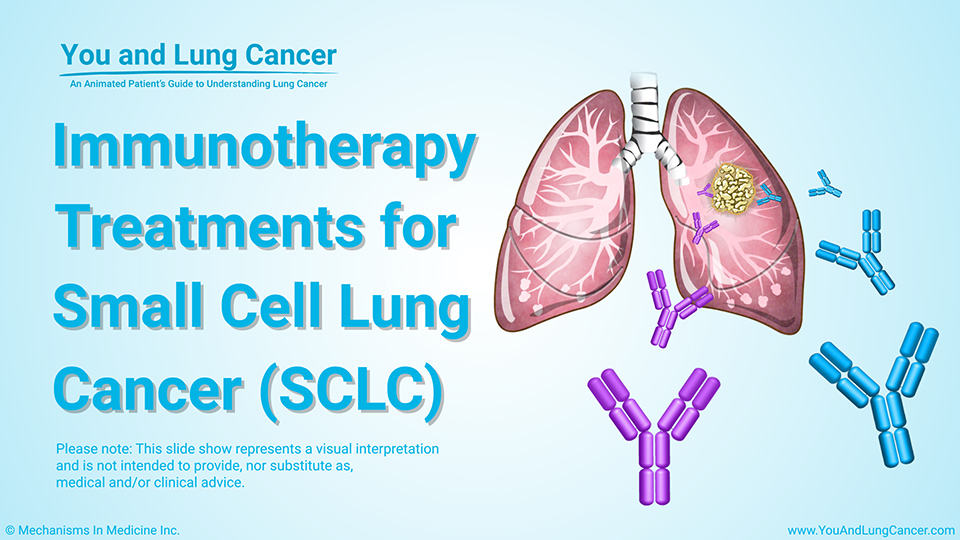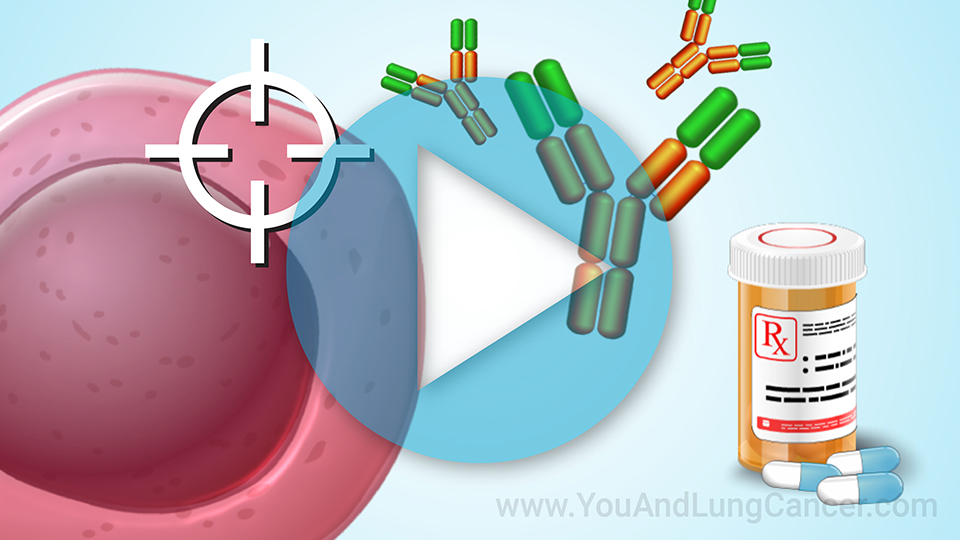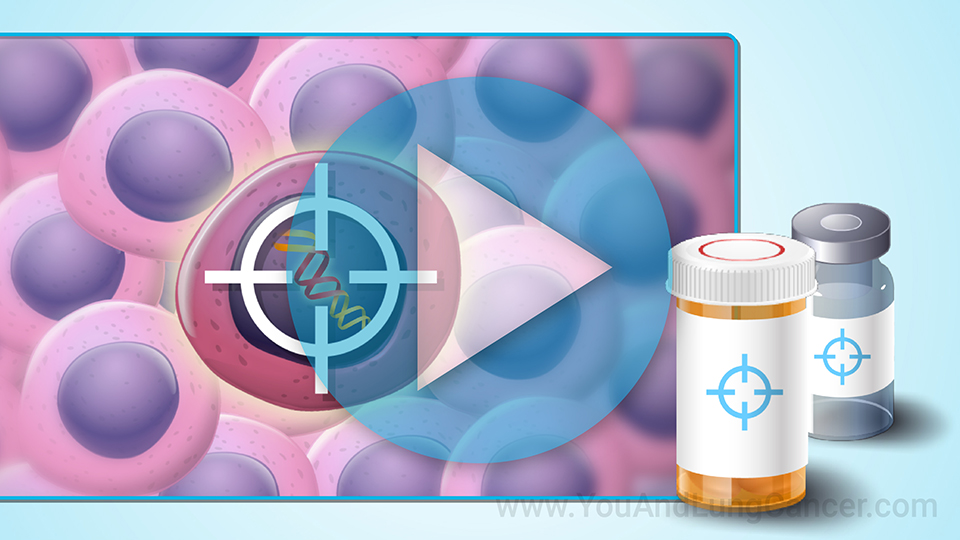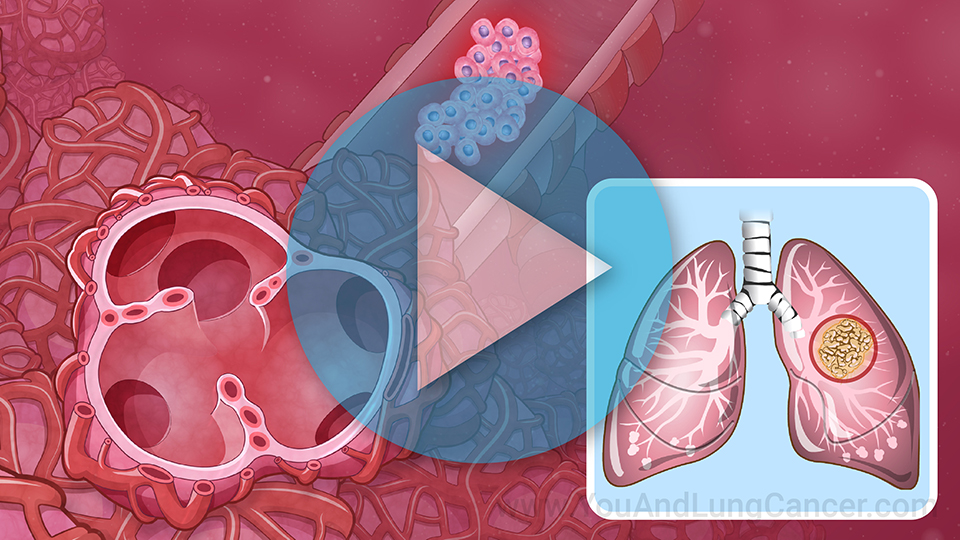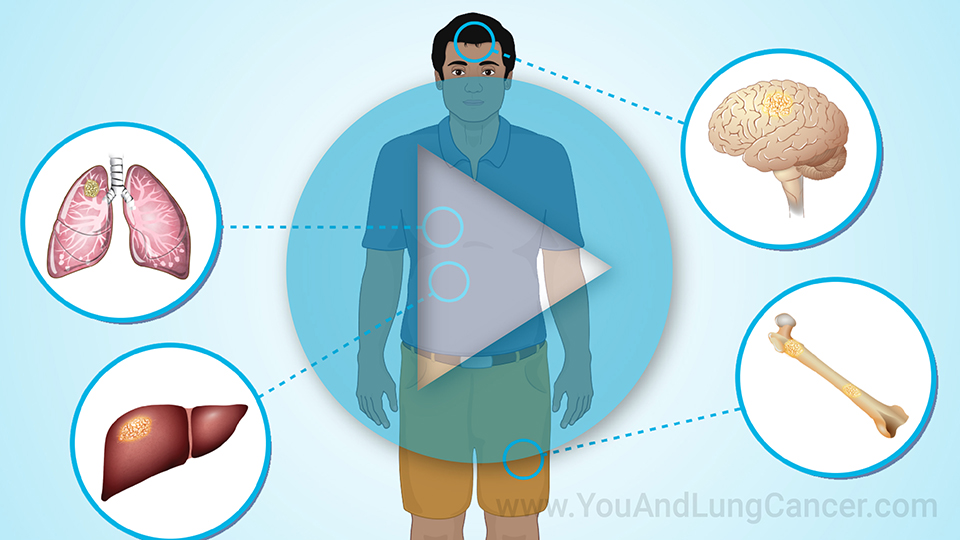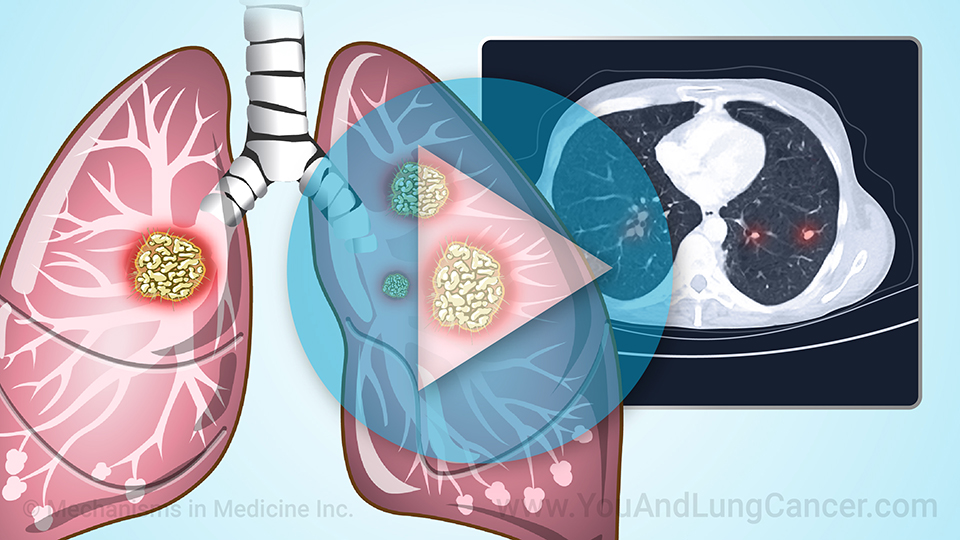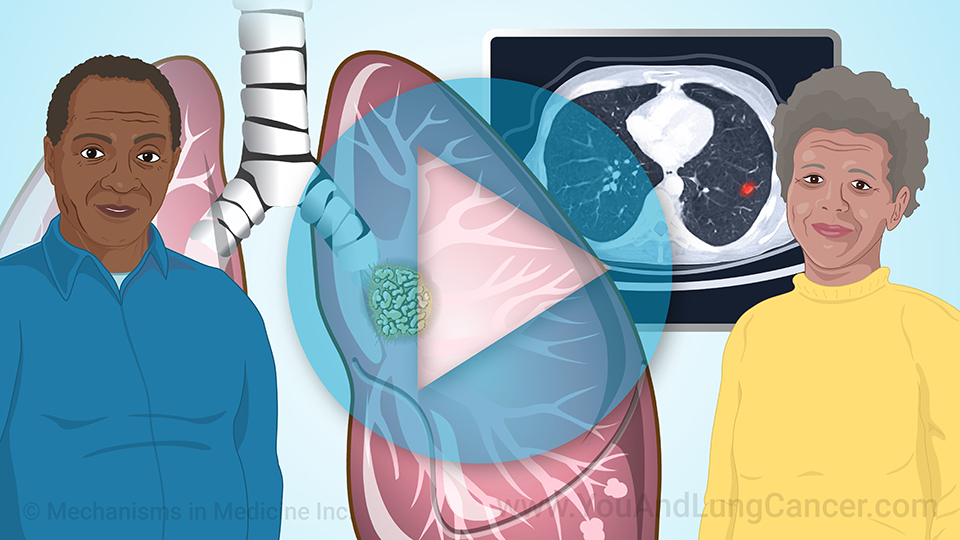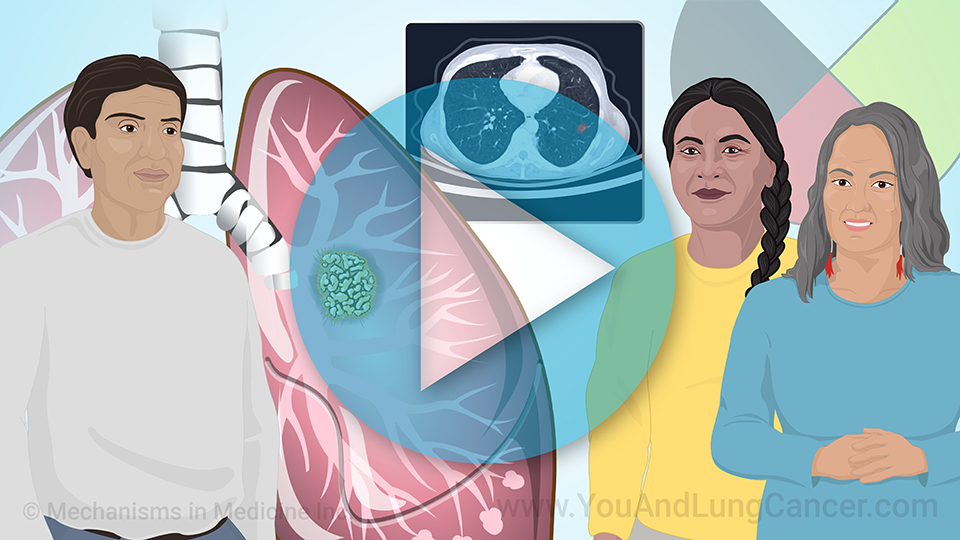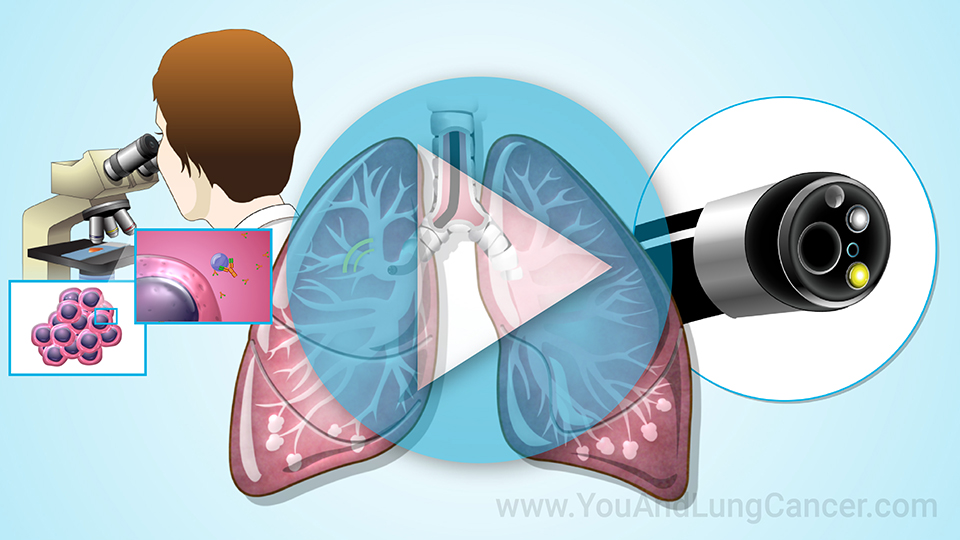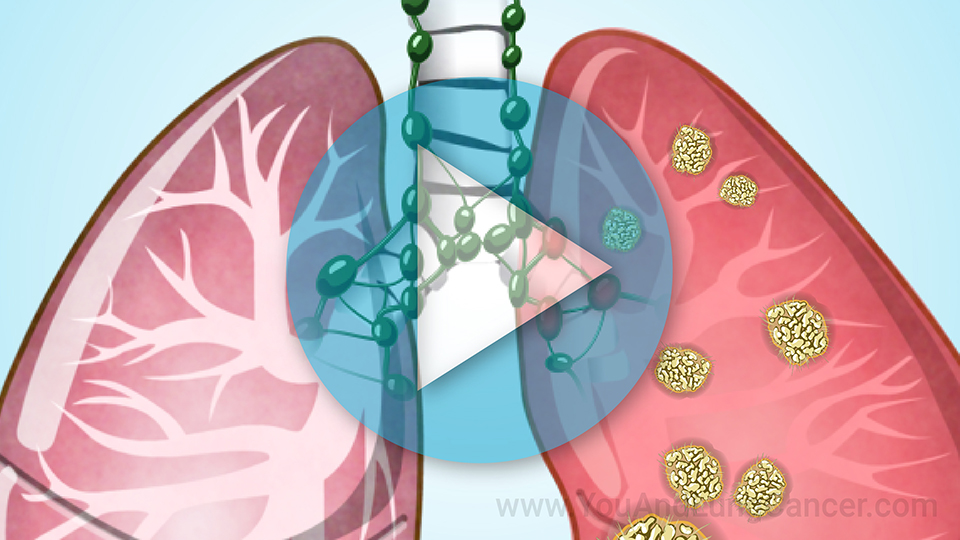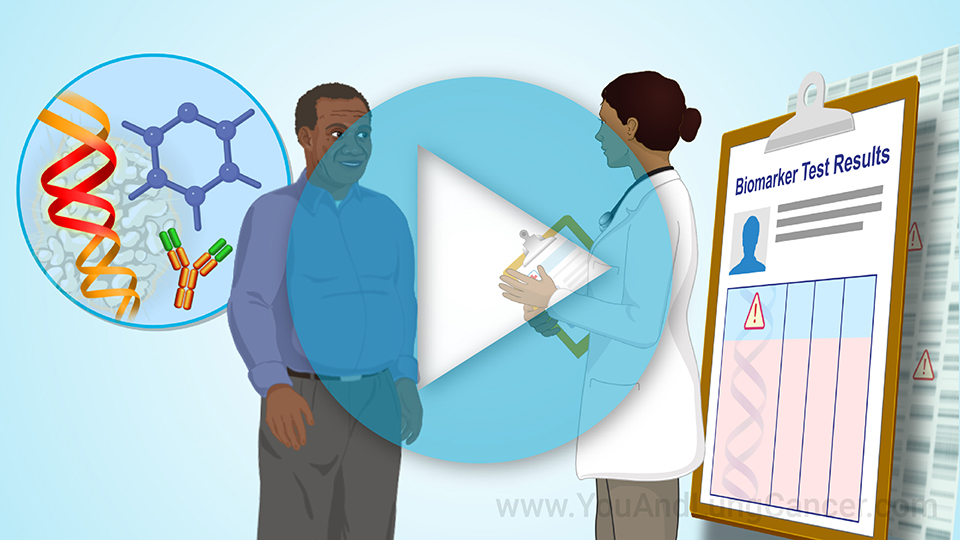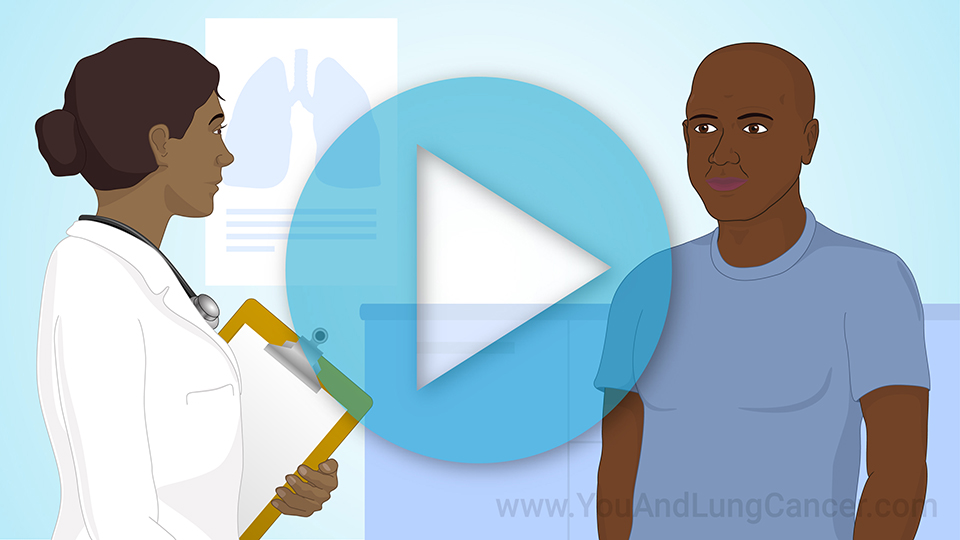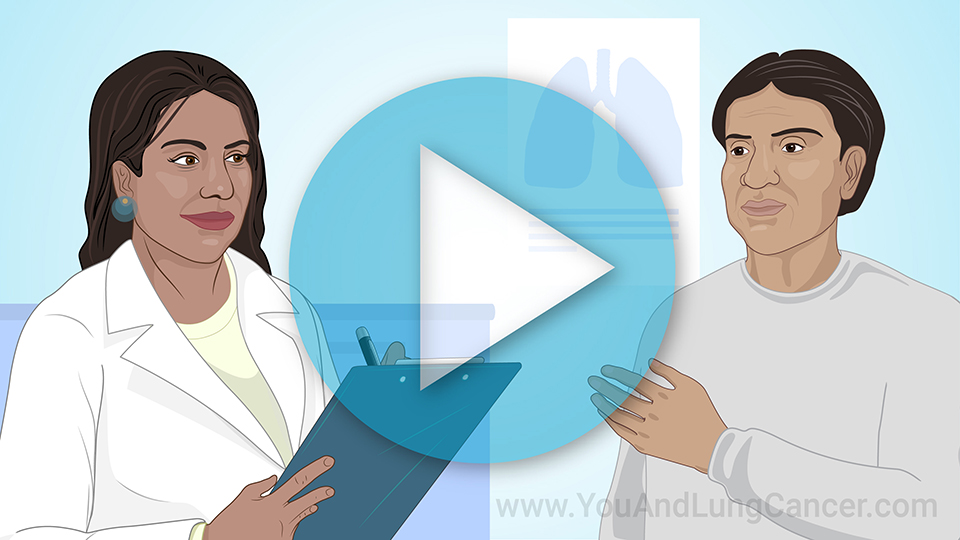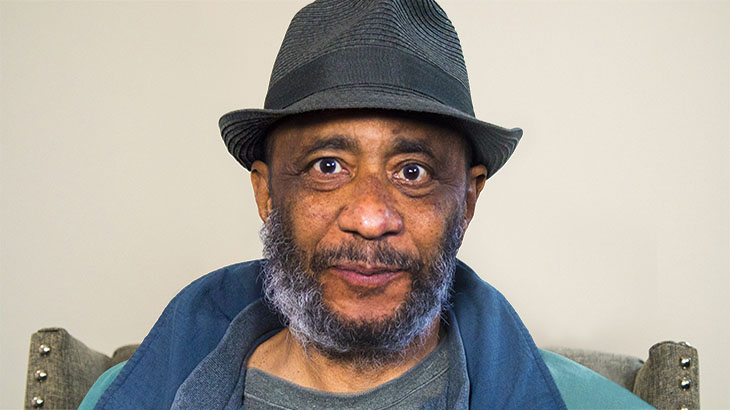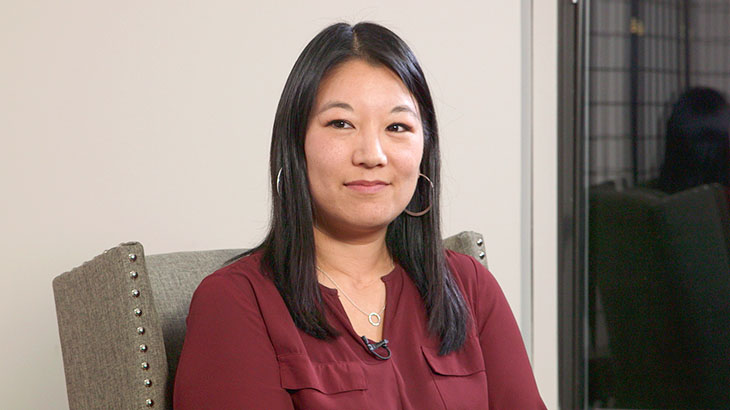Immunotherapy Treatments for Non-Small Cell Lung Cancer (NSCLC)
*Please note: This slide show represents a visual interpretation and is not intended to provide, nor substitute as, medical and/or clinical advice.
Is immunotherapy right for your NSCLC? Evaluation
Is immunotherapy the right treatment for your non-small cell lung cancer? The first step in finding out is for your doctor to do a complete evaluation. This will include tests to look for genetic changes and for the checkpoint protein PD-L1 in your tumors.
Is immunotherapy right for your NSCLC? Staging, treatment history
Your doctor will also consider other factors, such as
-
The stage of your cancer. This is a way of measuring how much cancer is in your body.
- Whether you’ve been treated for non-small cell lung cancer before and what kind of treatment you received.
When might targeted therapy be a better choice?
Your doctor will check to see if your tumor has certain genetic changes, such as changes in proteins called EGFR or ALK. If it does, your doctor may recommend that you get targeted therapy first because it will do the best job of shrinking your tumor.
Targeted therapy uses drugs to attack abnormal changes in certain genes in the cancer cells. Like immunotherapy, targeted therapy is a kind of precision medicine. Precision medicine means treatment that is tailored to the precise features of your cancer.
When is immunotherapy right as the first treatment for advanced NSCLC?
Your doctor may recommend that you start treatment for advanced non-small cell lung cancer with an immunotherapy drug when
- Your tumor doesn't have the proteins EGFR or ALK.
- You have not been treated for NSCLC before.
- Your cancer has spread to other organs.
Your doctor may recommend treatment with immunotherapy alone or with immunotherapy plus chemotherapy.
When is immunotherapy right for Stage III NSCLC?
Your doctor may recommend treatment with the immunotherapy drug durvalumab when
- Your cancer has spread into the chest or lymph nodes near the lungs but not to other organs, or
- You have had chemotherapy and radiation treatment and your cancer has not gotten worse.
When is immunotherapy right as a later treatment for advanced NSCLC?
Your doctor may recommend immunotherapy if your cancer has grown or come back after you have had chemotherapy, targeted therapy, or both.
Even if your cancer cells don’t have the checkpoint protein PD-L1 or have low levels of it, immunotherapy may still work for you after you have received other treatments.
Your doctor may recommend that you get both an immunotherapy drug and chemotherapy.
What are clinical trials? Is a clinical trial right for me?
Clinical trials are tests to find out if a new cancer treatment is better than existing treatments. Ask your doctor if enrolling in a clinical trial is right for you.
What side effects can occur from immunotherapy?
Side effects can occur when an immunotherapy drug attacks healthy cells. Common side effects include
- Feeling tired and weak
- Pain in the muscles, joints, or stomach
- Loss of appetite
- Itching
- Diarrhea
- Skin rash
How are immunotherapy side effects treated?
Always talk to your health care team about any side effects you are having.
Side effects of immunotherapy are often treated with prednisone, a drug that suppresses your immune system. Your immunotherapy will be stopped until the side effects clear up.
References
- Brahmer J et al. The Society for Immunotherapy of Cancer consensus statement on immunotherapy for the treatment of non-small cell lung cancer (NSCLC). Journal for ImmunoTherapy of Cancer (2018) 6:75.
- Gubens M & Davies M. NCCN Guidelines Updates: New Immunotherapy Strategies for Improving Outcomes in Non–Small Cell Lung Cancer. J Natl Compr Canc Netw 2019;17(5.5):574-578.
- National Cancer Institute. Atezolizumab. 6/8/2020. https://www.cancer.gov/about-cancer/treatment/drugs/atezolizumab.
- National Cancer Institute. Durvalumab. 3/30/2020. https://www.cancer.gov/about-cancer/treatment/drugs/durvalumab.
- National Cancer Institute. Nivolumab. 6/17/2020. https://www.cancer.gov/about-cancer/treatment/drugs/nivolumab.
- National Cancer Institute. Pembrolizumab. 7/9/2020. https://www.cancer.gov/about-cancer/treatment/drugs/pembrolizumab.
- Patel J. Just Diagnosed With Lung Cancer: Answers from an Expert. 7/14/2018. https://www.cancer.net/blog/2018-06/just-diagnosed-with-lung-cancer-answers-expert.
- Postow M, Wolchok J. Special considerations and toxicities associated with checkpoint inhibitor immunotherapy. 2020. UpToDate, Inc. https://www.uptodate.com/contents/special-considerations-and-toxicities-associated-with-checkpoint-inhibitor-immunotherapy
- Santini FC, Rizvi H, Plodkowski A, et al. Safety and Efficacy of Re-treating with Immunotherapy after Immune-Related Adverse Events in Patients with NSCLC. Cancer Immunol Res. 2018 Sep;6(9):1093-1099.
- Simonaggio A, Michot JM, Voisin AL, et al. Evaluation of Readministration of Immune Checkpoint Inhibitors After Immune-Related Adverse Events in Patients With Cancer. JAMA Oncol. 2019;5(9):1310-1317.
This slide show provides an overview of several immunotherapy treatments that have been approved for non-small cell lung cancer (NSCLC). Immunotherapy is the use of medicines to stimulate the body's immune system to recognize and attack cancer cells. This slide show also describes how your doctor will evaluate whether immunotherapy is right for you, possible treatment side effects, and clinical trials. It's important to discuss all treatment options with your doctor or cancer care team, so you can make the best decisions that are right for you. Side effects of immunotherapy are often treated with prednisone, a drug that suppresses your immune system. Your immunotherapy will be stopped until the side effects clear up.
-
Share with family and friends:
Click here to take our SURVEY
Your feedback is important to us! We will use your feedback to develop future areas of content about lung cancer which will help other patients, caregivers and families.
